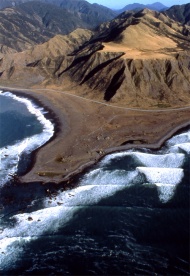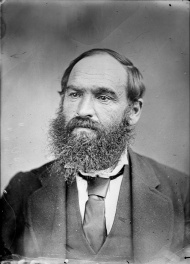Events In History
-
 13 October 1975Whina Cooper leads land march to Parliament
13 October 1975Whina Cooper leads land march to ParliamentAbout 5000 marchers arrived at Parliament and presented a petition signed by 60,000 people to Prime Minister Bill Rowling. The main goal of the hīkoi was to end the alienation (sale) of Māori land. Read more...
-
 23 September 1887Tongariro mountains gifted to Crown
23 September 1887Tongariro mountains gifted to CrownHoronuku (Te Heuheu Tūkino IV), the paramount chief of Ngāti Tūwharetoa, signed a deed presenting the mountain tops of Tongariro, Ngāuruhoe and Ruapehu to the Crown for the purpose of establishing a national park. Read more...
-
 30 October 1865Native Land Court created
30 October 1865Native Land Court createdThe Native Land Court was one of the key products of the 1865 Native Lands Act. It converted traditional communal landholdings into individual titles, making it easier for Pākehā to purchase Māori land. Read more...
Articles
The Treaty in practice

Amalgamating Māori into colonial settler society was a key part of British policy in New Zealand after 1840. Economic and social change, along with land-purchase programmes, were central to this process.
-
Page 2 – Slide to war
War raged in the North Island in the mid-19th century. The period from 1860, when conflict broke out in Taranaki, through to about 1872, is commonly called the New Zealand Wars
-
Page 3 – Obtaining land
How to obtain land for European settlement was always a key issue in New Zealand. With the wars of the 1860s, a new legal system backed up conquest as a means of gaining Māori
-
Page 6 – The Treaty debated
Modern New Zealand has debated the Treaty of Waitangi as never before. Understanding, reconciliation, protest and confrontation have been part of this process.
Treaty timeline

See some of the key events between 1800 and 1849 relating to the Treaty of Waitangi.
-
Page 2 – Treaty events 1850-99
See the key events between 1850 and 1899 relating to the Treaty of Waitangi.
-
Page 4 – Treaty events since 1950
Learn about some of the key events from 1950 onwards relating to the Treaty of Waitangi.
The Vogel era

In 1870, Colonial Treasurer Julius Vogel launched the most ambitious development programme in New Zealand’s history. The ‘Vogel era’ was a decisive moment in New Zealand’s 19th-century transformation from a Māori world to a Pākehā one.
-
Page 3 – Vogel's vision
In June 1870, Vogel unveiled the most ambitious public works and assisted-immigration programme in New Zealand’s history.
-
Page 4 – Building Vogel's railways
Julius Vogel wasn’t the first colonial politician to promise public works and immigration on the back of borrowed money. But the early 1870s offered better prospects for
-
Page 5 – Vogel's legacy
After the initial enthusiasm of the 1870s, Julius Vogel’s reputation suffered in the 1880s when New Zealand’s economy slumped into a long depression that was triggered by an
Māori King movement origins

In May 2008 Māori gathered at Ngāruawāhia to celebrate the 150th anniversary of the formation of the Kīngitanga, or Māori King Movement. The current king, Te Arikinui Tūheitia Paki, was crowned in August 2006 following the death of his mother, Dame Te Ātairangikaahu.
- Page 3 - The land issueThe pressure to sell land was a key factor in the creation of the Kīngitanga. Before European settlement Māori could not sell land and few chiefs had the authority to gift land.
Scenery preservation 1903-1953

Premier Richard Seddon outlined his vision for 'God's own country' in 1903 as he steered the Scenery Preservation Act through Parliament. This act was an important landmark in preserving New Zealand's natural and historic heritage.
- Page 7 - Maori and scenic reservesInitially Maori had mixed feelings about the Scenery Preservation Act. The Member of Parliament for Northern Maori, Hone Heke Ngapua, welcomed it as a way to protect totara and
Biographies
-
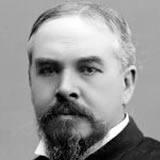 Ballance, John
Ballance, John
John Ballance, who led the Liberals to power in 1890, was called ‘the rainmaker’ by voters relieved to see the return of prosperity.
Read more... -
 Carroll, James
Carroll, James
Cabinet Minister and twice acting Prime Minister, James Carroll’s main aim in Parliament was to empower Maori and secure a role for them in the economic life of the country.
Read more... -
 Tāwhai, Hōne Mohi
Tāwhai, Hōne Mohi
A member of the House of Representatives, Hōne Mohi Tāwhai became disillusioned in the settler-dominated Parliament and helped set up an alternative Māori Kotahitanga Parliament.
Read more... -
 Tomoana, Hēnare
Tomoana, Hēnare
Ngāti Kahungunu leader Hēnare Tomoana was the first speaker (pīka) of the Māori Parliament in 1892.
Read more... -
 Rickard, Eva
Rickard, Eva
Eva Rickard was one of the most outspoken Māori land-rights campaigners of the 1970s.
Read more... -
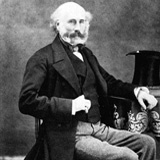 Browne, Thomas Robert Gore
Browne, Thomas Robert Gore
Biography of Colonial Governor and Soldier, Thomas Gore Browne
Read more... -
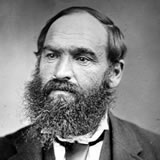 Bryce, John
Bryce, John
Native Minister who was in charge at the time 1,600 Armed Constabluary destroyed the settlement of Parihaka in November 1881
Read more... -
 Coates, Joseph Gordon
Coates, Joseph Gordon
Gordon Coates seemed unbeatable. Tall and handsome, this affable war hero embodied modernity – he was the ‘jazz premier’. In 1925’s presidential-style election voters elected to take their ‘Coats off with Coates’.
Read more... -
 Fitzgerald, James Edward
Fitzgerald, James Edward
James Edward Fitzgerald was a provincial and national politician
Read more... -
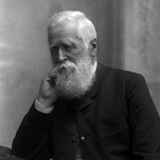 Fox, William
Fox, William
William Fox headed New Zealand governments four times. A rug-puller rather than a bridge-builder, he was better at defeating governments than leading them.
Read more... -
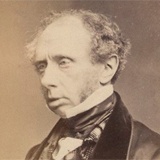 Grey, Henry George (Earl Grey)
Grey, Henry George (Earl Grey)
Earl Grey was Secretary of State for the Colonies from 1846 to 1852 who insisted that the vast bulk of New Zealand was unowned "waste land".
Read more... -
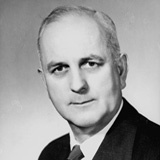 Hanan, Josiah Ralph
Hanan, Josiah Ralph
As Minister of Māori Affairs in the 1960s, Ralph Hanan generally showed understanding of Māori interests and aspirations.
Read more... -
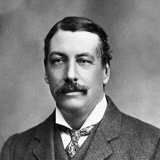 Herries, William Herbert
Herries, William Herbert
In 1912 William Herries became Minister of Native Affairs in the Massey government, an office he held until 1921.
Read more... -
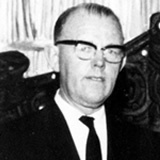 Hunn, Jack Kent
Hunn, Jack Kent
Jack Hunn commissioned a series of wide-ranging studies on Māori population, housing, education, employment, health, crime and land titles.
Read more... -
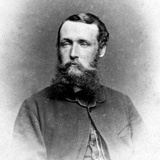 Mair, Gilbert
Mair, Gilbert
Served with distinction during the New Zealand Wars. Played a leading role in campaigns against Te Kooti, commanding an irregular contingent of loyalist Māori known as the Arawa Flying Column.
Read more... -
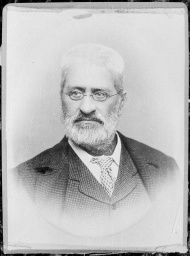 Mantell, Walter Baldock Durant
Mantell, Walter Baldock Durant
Naturalist and politician Walter Mantell spent much of his career trying seek to justice for South Island tribe Ngāi Tahu after the government failed to keep promises made during land deals with the tribe in the 1840s and 1850s.
Read more... -
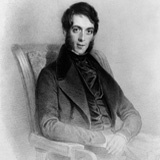 Martin, William
Martin, William
Appointed New Zealand's first chief justice, William Martin, persided over the murder trial of Maketū Wharetōtara, a Bay of Islands Māori charged with murdering the granddaughter of a leading Ngāpuhi chief, two European adults and a European child.
Read more... -
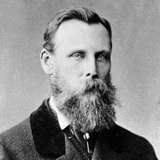 Rees, William Lee
Rees, William Lee
William Rees entered Parliament as an Auckland member from 1876 to 1879. He acted as counsel for Ngāti Porou of the East Coast in their claims involving dubious land purchases.
Read more... -
 Richmond, James Crowe
Richmond, James Crowe
James Crowe Richmond, elected member of Parliament in 1860, believed it vital to defeat Māori opposition to European settlement.
Read more... -
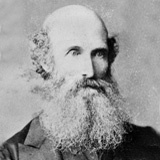 Russell, Henry Robert
Russell, Henry Robert
Politician and runholder, Henry R. Russell, supported Henare Matua's Hawke's Bay Repudiation movement, and funded the Te Wananga newspaper as well as the Napier repudiation office.
Read more... -
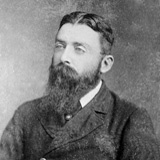 Sheehan, John
Sheehan, John
Lawyer John Sheehan, the first European New Zealand-born Parliamentarian, represented Māori in land claim cases. In the later part of his career, he damaged many of his relationships with Māori through bungled negotiations and his own incompetence.
Read more... -
 Vogel, Julius
Vogel, Julius
Premier Julius Vogel's great plan was to borrow heavily to build infrastructure and to lure migrants. It was controversial, but the money and migrants stimulated the economy and created a viable consumer market for producers.
Read more... -
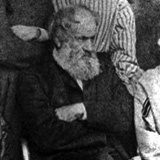 Clarke, George
Clarke, George
Lay missionary George Clarke reluctantly became "Chief Protector of Aborigines" in 1840, leading a department of sub-protectors whose role was to look after Maori interests.
Read more... -
 Hadfield, Octavius
Hadfield, Octavius
Octavius Hadfield, member of the Church Missionary Society, was, in 1838, the first priest to be ordained in New Zealand. He became Bishop of Wellington in 1870.
Read more...
Related keywords
- railways
- julius vogel
- economy
- public works
- communications
- assisted immigration
- immigration
- telegraph
- provinces
- land confiscation
- napier
- taradale
- donald mclean
- historic places
- protest
- parliament
- 1970s
- palmerston north
- tauranga
- maori
- race relations
- ngati tuwharetoa
- tongariro
- national parks
- famous firsts
- apirana ngata
- landscape
- conservation
- william herries
- reform party
- james crowe richmond
- new zealand wars
- ngati kahungunu
- henare tomoana
- te reo māori
- william martin
- law reform
- law
- james edward fitzgerald
- canterbury association
- maori land court
- walter mantell
- ngai tahu
- john sheehan
- parihaka attack
- henry russell
- william rees
- ralph hanan
- 1960s
- henry george grey
- jack hunn
- maori housing
- maori health
- treaty of waitangi
- justice system
- francis fenton
- henry sewell
- john bryce
- riwha titokowaru
- whanganui city
- hone tawhai
- maori leaders
- religion
- cms
- octavius hadfield
- missionaries
- george clarke
- thomas gore browne
- governor
- waitara
- william fox
- premiers
- foxton
- temperance
- MPs
- kaipara
- gordon coates
- prime ministers
- Maori MPs
- james carroll
- john ballance
- liberal party
- gilbert mair
- te kooti
- tainui
- raglan
- eva rickard
- transport
- newspapers
- whanganui river
- whina cooper
- waikato
- kingitanga
- waikato wars
- george grey
- hikoi
- waitangi tribunal
- urbanisation
- nga tamatoa
- bastion point
- land claims
- timeline
- treaty claims
- sesquicentenary
- northern war
- robert fitzroy
- pre-1840 contact
- declaration of independence
- united tribes
- william hobson
- james busby
- new zealand company
- george gipps
-
Main image: Ōtātara Pā Historic Reserve
Ōtatara Pā, near Napier, is one of the most impressive archaeological sites in New Zealand.





